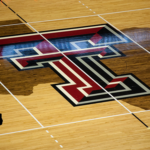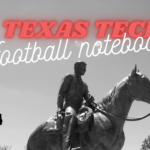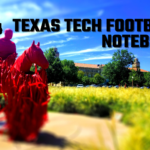 Leading Off
Leading Off
 Lubbock In The Loop. Check out Lubbock In The Loop for all of your weekend plans and activities. Lubbock In The Loop. Check out Lubbock In The Loop for all of your weekend plans and activities. |
NASA infrared telescope says goodbye after 16-year run. Via Science Magazine (the pictures at the link are pretty terrific):
The infrared Spitzer Space Telescope, considered one of NASA’s four “great observatories,” will be switched off on 31 January after a 16-year career. It probed some of the earliest galaxies ever seen, charted how they evolved and formed stars, and picked apart the constituents of exoplanet atmospheres. And in a late tour-de-force, it discovered a clutch of Earth-size planets around a nearby star. “It’s going out on a high note, producing great science to the end,” says Lisa Storrie-Lombardi, who worked on the mission for 20 years and now directs the Las Cumbres Observatory.
Spitzer is sensitive to infrared light, the photons emitted by the glow of warm objects. Stars do not dominate in Spitzer images. Instead, the telescope sees the glow of galaxies and the clouds of gas that coalesce into stars. It is also suited to finding the universe’s most distant objects, those whose light has been stretched to infrared wavelengths by the expansion of the universe. Earth’s atmosphere blocks most infrared light, so space telescopes are essential. A couple of infrared satellites preceded it, but Spitzer had the biggest mirror (85 centimeters), more sophisticated instruments, and state-of-the-art infrared sensors.
It didn’t have an easy journey into orbit, however. Originally, the Space Shuttle was supposed to carry it aloft for monthlong observing campaigns, before the 1986 Challenger disaster prompted a rethink. After several redesigns, it was finally launched in 2003 on a Delta II rocket. It was the last of the great observatories to launch, following the Hubble Space Telescope, the Chandra X-ray Observatory, and the Compton Gamma-Ray Observatory.
 Texas Tech Track and Field
Texas Tech Track and Field
The SPC plays host to the 🔝 meet in the country this weekend.
All eyes on Lubbock.
🔴#WreckEm⚫️ pic.twitter.com/7Sh23vzssG
— Texas Tech Track & Field (@TexasTechTF) January 28, 2020
 Texas Tech Softball
Texas Tech Softball
Today has been a 𝘽𝙄𝙂 day for our program.
We earned our first-ever preseason rankings from @USASoftball, @NFCAorg and @SoftbalAmerica in program history!
— Texas Tech Softball (@TexasTechSB) January 28, 2020
 Texas Tech Basketball
Texas Tech Basketball
This is Fun. Texas Tech takes on the second of three ranked opponents as they host West Virginia tonight, the game will be on ESPN+, which is not on your TV, but on an app on your TV.
𝐑𝐨𝐮𝐧𝐝 7️⃣
🆚: No. 12 West Virginia
📍: #Lubbock
⏰: 7 p.m., Wednesday
📺: Big 12 Now on @espn+
📻: @DoubleT973𝐏𝐑𝐄𝐕𝐈𝐄𝐖: https://t.co/gFq55geEN9
🔴#4To1 | #WreckEm⚫️ pic.twitter.com/B3cJP1qZCu
— Texas Tech Basketball (@TexasTechMBB) January 28, 2020
“Bring it on. This is what it’s all about. This is fun.”
FULL 📹: https://t.co/xTvQYes2lf
🔴#4To1 | #WreckEm⚫️ pic.twitter.com/1aN5ap8tUJ
— Texas Tech Basketball (@TexasTechMBB) January 28, 2020
 Texas Tech Football
Texas Tech Football
Helicopter Recruiting. Yesterday there were some tweets that head coach Matt Wells tweeted with him in a helicopter with offensive line coach Steve Farmer in the Houston area. Those tweets were eventually deleted, but as you can see below, Klein football did tweet it out and didn’t delete it. I suppose that there’s the issue of Wells and Farmer being on a helicopter after Kobe Bryant’s (and others) death in a helicopter crash on Sunday. I suppose there are a few things at work here. 1) When is it appropriate to be okay with helicopter travel? 2) If Bryant had died in a car accident, traveling by car would have no bias because it is more normalized. It’s the uniqueness of the situation that’s problematic. I’m guessing that Wells had planned this out in order to touch as many high schools as possible in the Houston area which makes sense, it just happened to be a timing issue. Poor timing. Not the actual act of flying in a helicopter because that was probably planned out well in advance, but the tweeting of it. I wasn’t offended by this, but I could see how some people maybe thought that this was too soon.
RT CoachMicahDavis: Texas Tech pulling out all the stops to recruit Klein Bearkat TE masontharp80 GO BEARKATS BearkatFB coach_hallmark Coach_Morton60 KleinISD KleinHigh TexasTechFB JessicaHaddox #bearkatfootball pic.twitter.com/WgWfuKMaC7
— Bearkat Football (@BearkatFB) January 28, 2020









